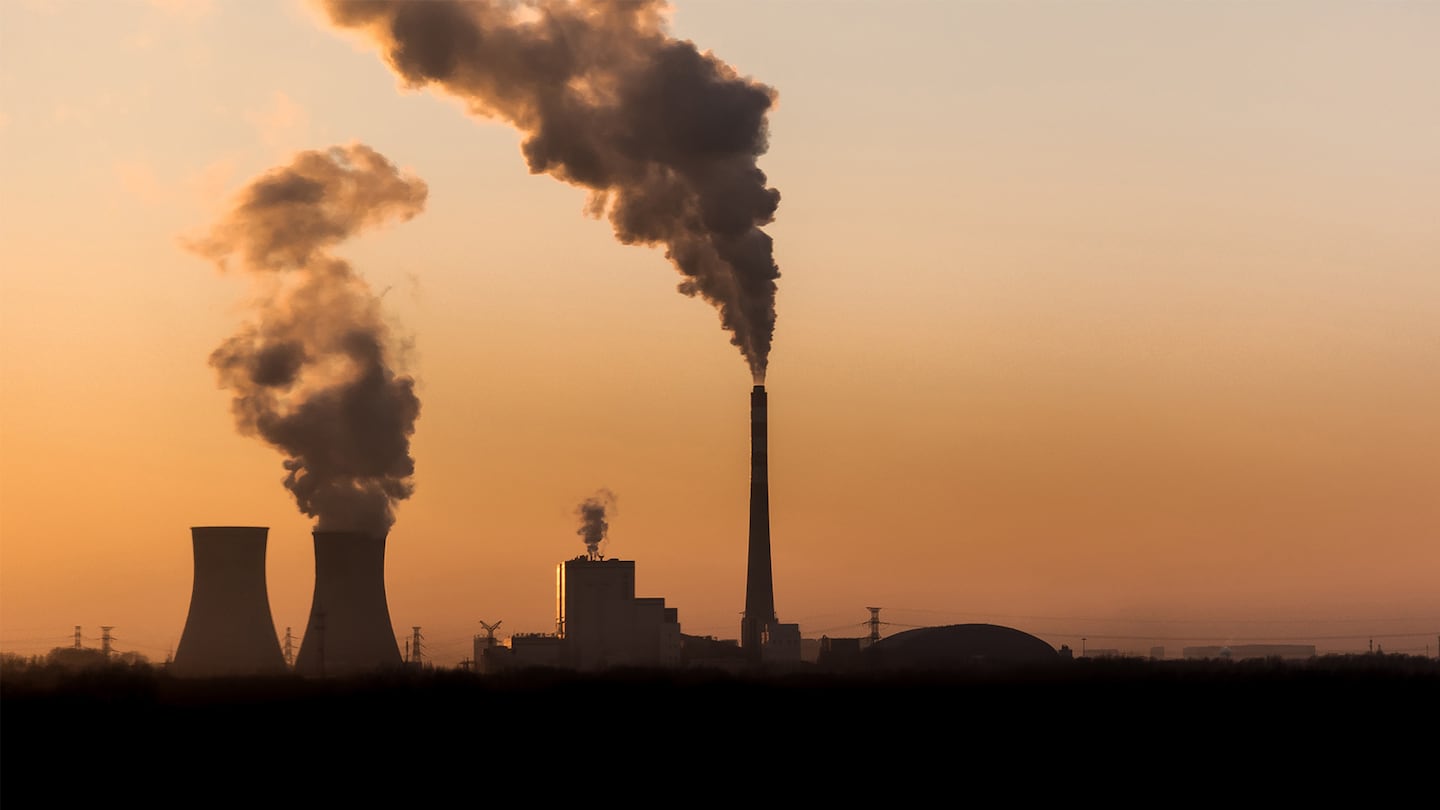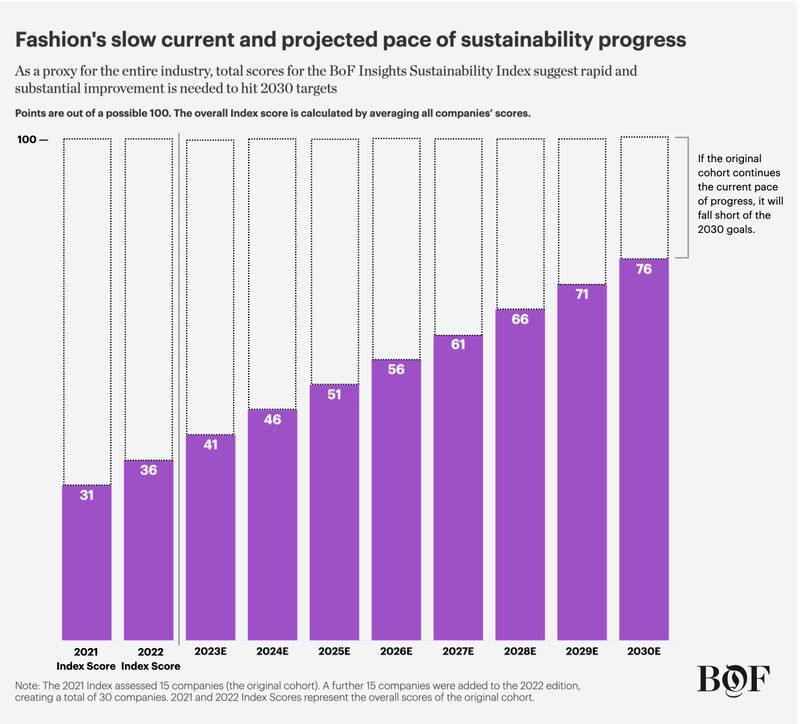
The Business of Fashion
Agenda-setting intelligence, analysis and advice for the global fashion community.

Agenda-setting intelligence, analysis and advice for the global fashion community.

Against the backdrop of the COP27 gathering in Egypt, the fashion industry received yet another stark reminder that addressing the climate crisis is more urgent than ever, and industries can’t shirk their responsibility to accelerate sustainability initiatives and address the climate crisis.
Progress on initiatives in fashion, thus far, has been too slow to uphold its part in this global effort, according to recent research from BoF Insights, the think tank at The Business of Fashion. The Sustainability Index is an analysis and benchmarking of the industry’s largest players in luxury, sportswear and high street progress towards achieving the UN’s Sustainable Development Goals by 2030.
The most recent research from BoF Insights reveals a massive gulf between brands’ publicly disclosed commitments and their corresponding index scores on sustainability objectives. Companies are assessed out of six impact categories: Emissions, Transparency, Water & Chemicals, Materials, Workers’ Rights and Waste. In the 2021 index, the 15 companies had an average score of only 31 out of a possible 100 points; in the following year, that cohort’s average rose to 36 points. Extrapolating this growth over the next eight years would result in a significant shortfall against 2030 goals.

BoF Insights is The Business of Fashion’s data and advisory team, partnering with leading fashion and beauty clients to help them grow their brands and businesses. Get in touch at insights@businessoffashion.com to understand how BoF Insights support your company’s growth for the long term.
Puma tops The BoF Sustainability Index 2022, but Skechers, Fila Holdings and Anta Sports all rank in the assessment’s bottom five.
Levi Strauss and H&M Group rank among the top five companies in The BoF Sustainability Index 2022, but the high street segment also contains the annual assessment’s lowest-scoring company with no points at all.
Kering and Burberry top the luxury ranking in this year’s BoF Sustainability Index, while Prada, Capri, Richemont and Tapestry lag.

Diana Lee is the Director of Research & Analysis at The Business of Fashion. She is based in London and oversees the content strategy and roadmap for BoF Insights.
The industry needs to ditch its reliance on fossil-fuel-based materials like polyester in order to meet climate targets, according to a new report from Textile Exchange.
Cotton linked to environmental and human rights abuses in Brazil is leaking into the supply chains of major fashion brands, a new investigation has found, prompting Zara-owner Inditex to send a scathing rebuke to the industry’s biggest sustainable cotton certifier.
Over the last few years, the run-up to Earth Day has become a marketing frenzy. But a crackdown on greenwashing may be changing the way brands approach their communications strategies.
This week, Sephora announced plans to double down on ‘green’ and ‘clean’ product labels, leaning into an increasingly risky marketing tactic even as a greenwashing crackdown has prompted other brands to pull back.